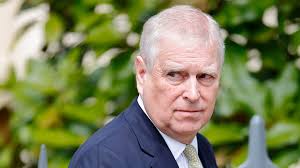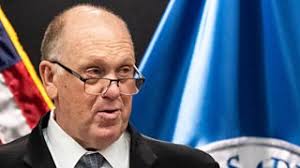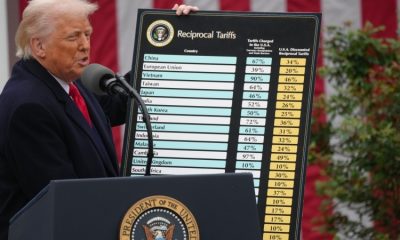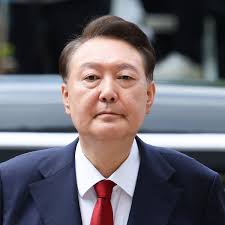News
Cholera Outbreak: 33 States Battle 2,102 Cases as NYSC Enforces Strict Camp Rules

Abuja, July 2, 2024 – The Director-General of the Nigeria Centre for Disease Control and Prevention (NCDC), Dr. Jide Idris, has confirmed a severe cholera outbreak across Nigeria, with 2,102 suspected cases and 63 deaths recorded in 33 states and 122 local government areas. The National Youth Service Corps (NYSC) has responded by implementing strict guidelines in orientation camps to prevent the spread of the disease.
Rising Cholera Cases: Dr. Idris announced that the outbreak has escalated, with cases rising from 1,579 and 54 deaths in 32 states to 2,102 and 63 deaths in 33 states within a week. The disease has notably affected Lagos, Bayelsa, Zamfara, Abia, Cross River, Bauchi, Delta, Katsina, Imo, and Nasarawa.
Primary Causes: Cholera, a highly contagious disease caused by ingesting contaminated food and water, has spread rapidly due to poor sanitation and the onset of the rainy season, leading to flooding and compromised water sources.
NCDC’s Strategic Response:
- Emergency Operations Centre (EOC): Activated to coordinate response efforts, mobilize resources, and provide strategic coordination.
- Preventative Measures: Include assessment of cholera readiness in hotspots, provision of guidelines and advisories, distribution of medical supplies, and public health awareness campaigns.
NYSC’s Proactive Measures:
- Strict Camp Rules: Implemented rigorous sanitation protocols, screened food vendors and kitchen staff, and provided hand-washing facilities and educational materials in orientation camps.
- Regional Efforts: Various states have taken specific measures to ensure camp safety:
- South-West: Comprehensive hygiene measures in Osun State Orientation Camp.
- Gombe State: Daily hygiene sensitisation and strategic placement of hand-washing containers and waste baskets.
- Sokoto State: Collaboration with health officials and screening of camp consumables and individuals.
- Benue State: Screening and educating food vendors, and providing hand-washing facilities and awareness jingles.
- Kwara State: Fumigation and clearing of Yikpata Orientation Camp to prevent disease outbreak.
State and Federal Actions:
- Kogi State: Confirmed two cholera cases in Lokoja and Omala LGAs, with a response team set up to investigate and treat cases.
- Oyo State: Inaugurated the Cholera Technical Working Group to coordinate multi-sectoral cholera prevention and response efforts.
- House of Representatives: Urged the Federal Government to implement measures to curb the outbreak, mandated public education on hygiene, and called for an investigation into the outbreak’s root causes.
Conclusion: Nigeria’s cholera outbreak demands coordinated efforts from the NCDC, NYSC, state governments, and federal authorities. The proactive measures in NYSC orientation camps and the comprehensive response strategy from the NCDC are crucial in managing the outbreak and safeguarding public health.
News
Investigation Continues as Andrew Released After Historic Royal Arrest

Search efforts and inquiries remain ongoing after Prince Andrew was released under investigation following a day spent in police custody.
More than 19 hours after he was photographed reclining in the back seat of a vehicle upon release, the King’s younger brother remains at the centre of an active inquiry. The 66-year-old spent approximately 11 hours in custody on his birthday after being arrested on suspicion of misconduct in public office.
The development marked the first arrest of a senior royal in modern history.
Following his release, Andrew departed Aylsham Police Station after a lengthy period that involved hours of transport and waiting.
Although no charges have been filed, Andrew has been released under investigation — meaning he is free to resume daily activities for now, but remains subject to further questioning as inquiries progress.
Authorities continue to examine matters linked to properties associated with the Duke, including locations connected to the Sandringham Estate.
According to royal correspondent Helena Wilkinson, Andrew’s legal situation remains unresolved, and he may be required to return for additional interviews as the investigation develops.
News
Andrew arrested on suspicion of misconduct in public office

Authorities have confirmed that Prince Andrew was arrested earlier today on suspicion of misconduct in public office, marking a significant development that is now set to move through the formal legal system.
The arrest took place at a residence on the Sandringham Estate in Norfolk at approximately 08:00 this morning. Police have since continued investigative searches at that property, as well as at his former home located within Windsor Great Park.
In recent weeks, Andrew had relocated from Windsor to establish a temporary base at Sandringham while renovation work progresses on his future long-term residence at nearby Marsh Farm.
The Sandringham Estate, originally acquired in 1862 as a private retreat for the future Edward VII when he was Albert, Prince of Wales, has long remained a cherished country residence passed from monarch to monarch. It continues to serve as a traditional gathering place for the Royal Family, particularly during the Christmas period.
It is understood Andrew has been staying at Wood Farm, a secluded house near the village of Wolferton. The residence holds personal significance, having been chosen by his father, Prince Philip, as his primary home following retirement from public duties in 2017.
Today, Sandringham has seen heightened police presence as the investigation proceeds.
Meanwhile, King Charles III continued with his scheduled public engagements in London, where he was greeted by both questions and expressions of public support upon arrival.
Maintaining continuity and stability, the King chose—like the Queen earlier—to proceed with previously planned duties. In a statement, he reaffirmed confidence in due process, noting that “the law must take its course.”
It has also been confirmed that neither the King nor Buckingham Palace were informed in advance of the arrest, underscoring the independence of the legal process now underway.
News
Police Review Private Flights at Stansted Following Epstein File Revelations

Authorities are assessing new information concerning private jet movements at Stansted Airport after fresh scrutiny linked to the activities of convicted sex offender Jeffrey Epstein.
Essex Police confirmed it is examining details related to private flights arriving at and departing from the airport in light of disclosures emerging from the recently published Epstein files.
The review follows calls from former UK Prime Minister Gordon Brown, who urged in the New Statesman that law enforcement should “urgently” revisit whether Epstein’s victims may have been trafficked into or out of the United Kingdom.
A previous investigation identified 87 flights connected to Epstein that either landed at or departed from UK airports between the early 1990s and 2018.
Stansted Airport has maintained that private aircraft operations are conducted independently, noting that it does not oversee passenger arrangements for privately chartered flights.
The police assessment is part of broader efforts to understand any potential connections between flight activity and trafficking concerns raised in the wake of the latest disclosures.
-

 News1 week ago
News1 week agoNine killed and 25 injured in shootings at school and home in Canada
-

 News1 week ago
News1 week agoKim Jong Un chooses teen daughter as heir, says Seoul
-

 News3 days ago
News3 days agoPolice Review Private Flights at Stansted Following Epstein File Revelations
-

 News1 week ago
News1 week agoMinnesota Immigration Enforcement Surge to Wind Down as Federal Officials Cite “Great Success”
-

 Entertainment1 week ago
Entertainment1 week agoTaylor Swift asks US government to block ‘Swift Home’ trademark
-

 Entertainment3 days ago
Entertainment3 days agoTech-Inspired Musician Look Mum No Computer to Represent UK at Eurovision
-

 News1 week ago
News1 week agoRubio warns Europe of new era in geopolitics before big Munich speech
-

 News3 days ago
News3 days agoDNA Test Yields No Match in Search for Missing Nancy Guthrie














